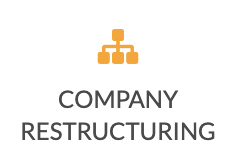Summary Approval Procedure
Introduced as a new tool with the Companies Act 2014, the Summary Approval Procedure (SAP) allows companies to carry out certain procedures that would otherwise be restricted under company law. Many of these restricted activities will arise over the lifetime of a company, so it is a vital tool for advisors to have in their repertoire.
The Summary Approval Procedure process is undoubtedly innovative and helpful, but, if incorrectly applied or misunderstood, it will not achieve what the company requires. It is vital that a client receives advice on the requirements of the specific SAP in question. For example, there are timelines that need to be met and certain business benefits that need to be demonstrated. If the necessary statutory requirements are not met, the transaction may not be valid under company law.
It is also important to note that a SAP cannot be performed retrospectively.
In addition to these considerations, various documents and declarations need to be drafted with due knowledge and care.
How We Can Help

Moreover, we have established direct relationships with some of Ireland’s top legal firms to advise on contentious legal matters in the area of SAPs.

From the initial phone call, OmniPro can take you through the steps that are required, the benefits and pitfalls that might arise, and the various matters that need to be raised with your client.
The Summary Approval Procedure - In Detail
- Financial assistance for share acquisition* (Section 82)
- Reduction of company capital* (Section 84)
- Variation of capital on reorganisation* (Section 91)
- The treatment of pre-acquisition profits or losses in a holding company’s financial statements as profits available for distribution (Section 118)**
- Provision of loans etc. to directors and connected persons (Section 239)
- Mergers* (Section 464)
- Members’ voluntary winding up (Section 579)
*Cannot be used by a PLC
** Cannot be used by a private subsidiary company where the parent is a PLC




